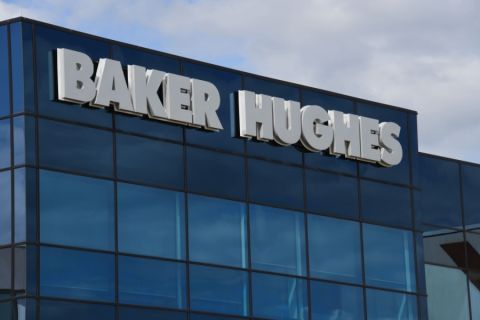One problem that keeps rearing its head is threatening oil and gas activity, but efforts are under way to curb the problem. Piracy and hijacking have unfortunately become commonplace in some parts of the world, particularly in the West African region, where lucrative crude oil and refined products entice pirates looking to make deals on the black market. GlobalData, a research and consulting firm, issued a news release this week saying the Gulf of Guinea could become the site of more piracy and hijacking incidents. “The Gulf of Guinea accounts for about 10% of the world’s crude oil exports, as well as many other products such as cocoa and metals, which are highly sought by the generally armed pirates on West African waters,” Jeffrey Kerr, GlobalData’s, managing analyst covering downstream oil and gas, said in the release. The Gulf of Guinea is among the sites offshore Nigeria that hold some of the country’s estimated 37Bbbl of proven oil reserves, according to the US Energy Information Administration. The EIA also noted piracy as being one of the rising security problems – others being oil and pipeline sabotage – facing Nigeria. These problems “have curtailed oil exploration projects and impeded the country from reaching its ongoing target to increase production to 4 MMb/d.” If efforts are not taken soon to reduce piracy, it could have a lasting negative impact on not only the oil and gas industry in the region, but also the revenue of African countries like Nigeria which depend heavily on the industry as a revenue generator. GlobalData reported that African Union member countries are working together to establish a regional center in Cameroon to examine the issue; however, naval presence and jurisdictional disputes remain obstacles. “Those countries won’t allow each other’s navies into their territorial waters. The pirates are well aware of this and are able to exploit it,” Kerr said. “Furthermore, many of the ships in West Africa are too large to move into port and must be moored offshore, making them easy targets for armed pirates, while the region’s shipping rules, which state that crews cannot be armed, deems defense even more difficult.” However, GlobalData cited a study that revealed there were 31 reported piracy incidents and one hijacking in West Africa for the first half of 2013, compared to nine incidents and two hijackings offshore Somalia. Kerr attributed the drop in piracy in eastern Africa to “an international naval presence that has armed crews on the ships offshore Somalia. Other measures, such as trying and convicting pirates in US courts, have also forced them to seek other locations.” On Aug. 2, three Somali pirates were sentenced to life in prison by the Federal District Court of Virginia following the February 2011 murder of four American citizens who were abducted. The US is one of more than 80 countries, international organizations, and industry groups working to stop piracy through the Contact Group on Piracy off the Coast of Somalia, according to information from the US Department of State. The agency attributed drops in piracy off the Horn of Africa to this partnership, which was formed in 2009 thanks to a UN Security Council Resolution. “The last successful pirate attack on a merchant vessel in the region occurred on May 10, 2012. Today, Somali pirates hold hostage one ship and approximately 60 mariners,” Jen Psaki, a state department spokesperson, said in an Aug. 7 press statement. “That is a more than 90% reduction in hostages held by pirates since January 2011.” Efforts to reduce or eliminate piracy are to be commended. Let’s put these efforts on the fast track worldwide, especially where piracy incidents are rising. Not only is property and money at stake; more importantly, human lives are in danger. Contact the author, Velda Addison, at vaddison@hartenergy.com.
Recommended Reading
Petrobras Awards SLB Another Contract Offshore Brazil
2024-12-12 - Petrobras has awarded JV SLB OneSubsea a contract for raw water injection systems a day after Petrobras selected SLB to handle integrated services at its offshore fields.
Baker Hughes Eases the Pain of Intervention from Artificial Lift
2024-10-11 - To lessen the “pain of intervention” during artificial lift, Baker Hughes’ Primera and InjectRT services take an innovative approach to address industry challenges.
E&P Highlights: Oct. 14, 2024
2024-10-14 - Here’s a roundup of the latest E&P headlines, including another delay at one of the largest gas fields in the world and two major contracts in West Africa.
E&P Highlights: Nov. 25, 2024
2024-11-25 - Here’s a roundup of the latest E&P headlines, including North Sea production updates as well as major offshore contracts and a transfer of interests by Exxon in Suriname.
SLB to Manage Construction of Deepwater Wells for Petrobras
2024-12-11 - SLB will work off nine ultra-deepwater rigs to oversee the construction of deepwater wells as part of the $800 million, three-year deal with Petrobras.





